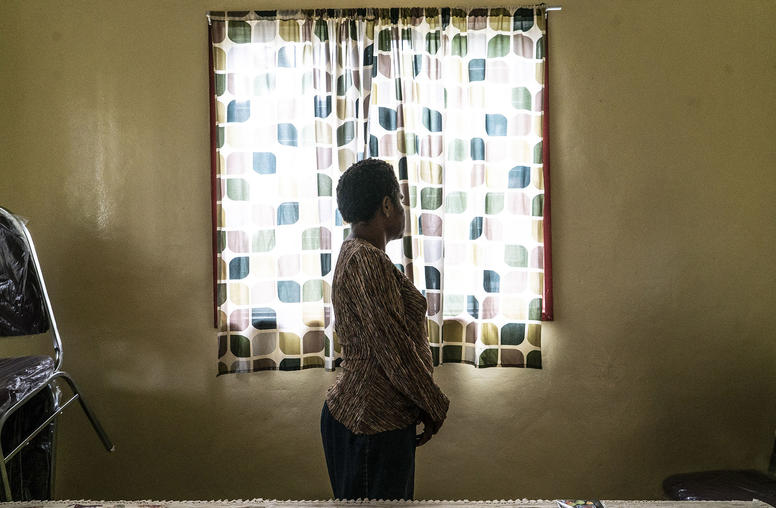Gender Inclusive Framework and Theory (Arabic)
A Guide for Turning Theory into Practice
إطار العمل والنظرية المعنيين بإدماج النوع الاجتماعي
دليل تحويل النظرية إلى ممارسة عملية
إن هذا الدليل هو أداة شاملة ومبسطة تعمل على تيسير إدماج تحليل النوع الاجتماعي في تصميم المشاريع. وبما أن العمل في مجال بناء السلام يتغير حسب السياق، قدم هذا الدليل ثلاث مقاربات لتحليل النوع الاجتماعي – مقاربة المرأة والسلام والأمن، والمقاربة السلمية الذكورية، ومقاربة الهويات المتقاطعة– تسعى كل مقاربة إلى تسليط الضوء على ديناميكية النوع الاجتماعي في بيئة معينة بهدف تحسين تصميم مشاريع بناء السلام.
مقدمة: تصميم مشاريع مدمجة للنوع الاجتماعي
كثيراً ما يؤدي النزاع العنيف إلى تدمير وتشتت المجتمعات، إذ يتسبب في إحداث اضطرابات على مستوى الهياكل الاجتماعية، خاصة فيما يتعلق بأدوار ومسؤوليات الرجل والمرأة والعلاقات التي تربط بينهما. يجدر على الممارسين في مجال بناء السلام أن يعالجوا كل من العوامل الدافعة والعواقب المترتبة على نشوب النزاع وتجزؤ المجتمعات، خاصة في البيئات الهشة والمتضررة من النزاع. فعلى سبيل المثال، تعتبر العسكرة المتزايدة للعنصر الذكوري الشبابي واتساع نطاق ممارسة العنف الجنسي، أحد العوامل الدافعة والمؤثرة في كل جوانب المجتمع، حتى بعد توقف العنف. ومع ذلك، فإن تحليل النوع الاجتماعي لا يتم أخذه بعين الاعتبار ولا يتم إدماجه في مسار تصميم المشاريع الساعية إلى الوقاية أو التخفيف من حدة النزاعات. إن تصميم المشاريع المدمجة للنوع الاجتماعي هو أمر أساسي لصياغة أفضل المقاربات الهادفة للوقاية من النزاعات العنيفة والحفاظ على السلام، فهو ليس بأمر ثانوي ولا ينبغي أن نفكر فيه في مراحل متأخرة١. إن إطار العمل والنظرية المعنيين بإدماج النوع الاجتماعي (TFIG) هو منهج بسيط ولكن شامل للشروع في إدماج تحليل النوع الاجتماعي في مسار تصميم المشاريع.
سنقوم من خلال هذا الدليل بما يلي:
- تعريف النوع الاجتماعي
- توصيف العلاقة بين النوع الاجتماعي ودينامكيات النزاع، وأهميتها في بناء السلام
- استعراض نظرية التغيير والإطار التحليلي لإدماج النوع الاجتماعي
- تقديم توجيهات محددة لإدماج النوع الاجتماعي خلال عملية تصميم المشاريع.



